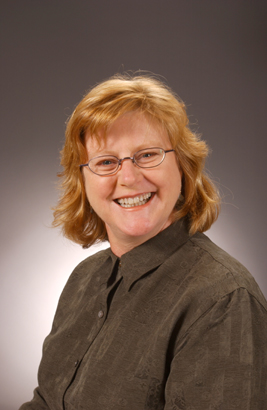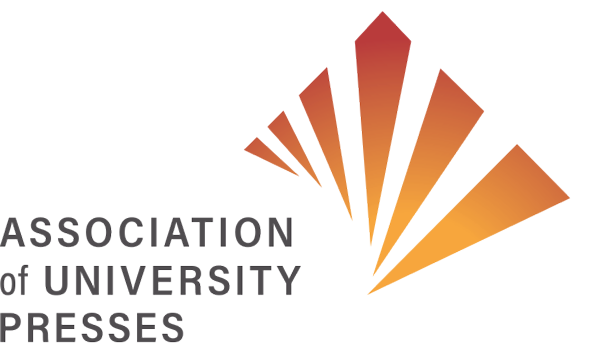Inaugural Presidential Talk
Director, University Press of Florida
June 2015

Before we begin, let me assure all the rights folks in the audience that AAUP has secured the proper licensing rights to all the music you have heard this week. To the vendor who wanted a song by Taylor Swift—sorry, we could not afford that license. Today, to get you thinking about the 2016 Philadelphia meeting, you will be leaving the session to the soulful Philly sound “Ain’t No Stopping Us Now.” And after this provocative and collaborative few days, there ain’t no stopping us.
Most of what I will say today is echoing the thought expressed by four directors in the May edition of Choice1. But everything they said is worth repeating.
Welcome to the evolution of the monograph. Usually, a speaker opens with a joke; being anything but usual, I am opting for a story. The last time I served on the board of the AAUP, I almost died. Let this serve as a warning to you. Seriously, though…
Now my dilemma was the result of an series of unfortunate circumstances, and should not in any way discourage you from serving the AAUP community. Four days after coming home from Boston, I had developed fourteen small, but potentially deadly, pulmonary embolisms. My first day of confinement in the hospital, waiting for the heparin to kick in, I get a call from my best friend in college informing me he had stage-four cancer. We both stood on the edge of an abyss and we hadn’t see it coming. We were, in a word, “gobsmacked.”
Two years later, Ken and I are living on what we call “the other side” of our lives, in the time after, peering over that edge, adapting to our new selves. We had both rounded a corner, not even knowing the street was ending. There was the time before and the time after, the “game changer” that created our adaptation to our new selves. We had not just gotten sick, we had fundamentally transformed.
Now this is where all of this begins to make some sense for today’s plenary and be forewarned, my geekness will appear.
Today’s plenary is all about our evolution, about the time after our old ways, and those of our home institutions, were transformed. 2009 was that abyss, the game changer for everybody and every company. What made the recession/depression of 2009 so different from all the previous ones was that this one was coupled with the light-speed manipulation of our culture and environment through Dr. Vint Cerf’s Internet. Everyone turned the corner in 2009 but the “Age of Information” kept right on truckin’, getting bigger, and bolder. 2009 marked the beginning of our transmutation, because like Darwin’s finches, our environment had fundamentally changed. Like Darwin’s finches, we had to adapt our beaks or starve.
The higher education budgets, as well as changing buying habits of scholars and students, forced us into a new “private/public” model. University presses faced a rapid decline of sales, as the erosion of funding to libraries, coupled with rapidly changing delivery methods, forced us to move beyond the usual to the unusual, from single-tasking to multitasking, to selling to a few outlets to selling to multiple outlets in an ever increasing variety of formats. Now this is nothing new to any of you. But rather than view this as a perpetual crisis, let’s instead see this as the moment when our industry had found its corner, its new ecosystem, its game changer. Our finch is still a book and a mighty fine finch it is. But make no mistake, our beaks are changing.
Our present ecosystem is led, not by book sales, but by information and content delivery. Our environmental evolution of information is still coming at a far greater pace then any biological evolution. Thirty years ago, we had no CD-ROM devices; ten years ago, no Kindles. Now, we wear computers on our wrists. 2009 may have felt like an asteroid, yet we are emerging from our past-selves into a more robust, adaptive species. As Darwin discovered with his finches, we are adaptations—evolving—but fundamentally, we remain finches.
As our own “Oracle of Delphi,” Michael Jon Jensen said in 2010, “…we face a future of constant adaptation to changes that are unpredictable, of uncertainty because the rules have changed, of a strange landscape without maps or landmarks.”2
There be dragons here.
So here is my bottom line: I refuse to acknowledge this as yet the umpteenth time university presses have been in crisis. It is in fact our own transmutation, for no longer does our worth depending entirely on sales nor does our value diminish if our sales do. Our value is much more than that bottom line—it is our unique skill set, our outreach, and our commitment to excellence that keeps us aligned with our institution’s missions. That change in direction, it seems, has been the hardest kernel to accept.
Our opening banquet speaker, Aaron A. Abeyta, reminded us “Language is what carries me forward and simultaneously into the past.”
This is the species of finch we embrace; our peer review is our glorious plumage.
But the dragons we face are real, so what to do we in these times of falling book sales, declining institutional support, and a cultural shift away from reading? What resources do we have beyond cash flow that we can manipulate, contemplate, and aggregate? What does our finch have that no other finch has?
We have innovation, collaboration, reciprocity, generosity, and creativity. Now, as my fabulous colleagues at Florida know, I am a Sci-Fi fan—in particular, the Star Trek franchise. I was mesmerized by the thought of a universe where knowledge was at the tip of a finger and that a mission could be nothing more than being intently curious. That there could be an entire race dedicated to knowledge and its pursuit. In short, I wanted to be a Vulcan when I grew up.
Within the Vulcan universe is the philosophy of IDIC—”Infinite Diversity in Infinite Combination.” To me, there is no better description of the scholarly press world. Infinite diversity does not exclude scalability but brings a variety to our gene pool. It’s the infinite combinations that we explore today. Our diversity is our adaptive coloring, our collaboration and generosity help us cope with our new environment, our reciprocity and creativity are the changing of our beaks.
When you think of a scholarly press in these terms, we are a rare finch in the university ecosystem. Each of us should challenge our administrators to find a more adaptive, innovative, mission-driven unit on the campus. Collaborating is what university presses do, adaptation is our strength and resilience.
Last year, Barbara Kline Pope challenged us all to “get stuff done.” Many presses took up that challenge and today we present eight versions of our finch, eight visions of what the university press of tomorrow will look like. Today’s session is all about our evolution, our adaptability, our formation of clarity of purpose, because, as Diane Von Furstenberg said, “You cannot fake clarity.”
So let me be clear: We are not in crisis, we are adapting.
LL Cool J said it best, “don’t call it a come back”—we have been here before, and we will be here again.
********
1 “Measuring Our Success,” Linked with permission from CHOICE, copyright by the American Library Association.
2 “University Presses in the Ecosystem of 2020,” Journal of Electronic Publishing, Fall 2010. http://dx.doi.org/10.3998/3336451.0013.209
